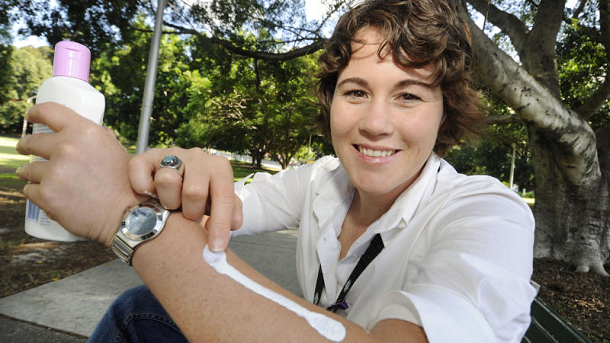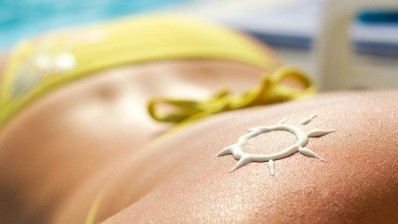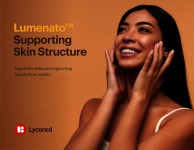Entering the age of the ‘super sunscreen’: Study highlights protection against cancer

Scientists at Queensland University of Technology (QUT) carried out a world-first human study to assess the impact of sunscreen at the molecular level and found that it provides 100% protection against all three forms of skin cancer: BCC (basal cell carcinoma); SCC (squamous cell carcinoma); and malignant melanoma.
Whilst it is widely accepted that sunscreen stops you from getting burnt, there has been academic debate about the effectiveness of sunscreen in preventing skin cancers.
Prevention
Now, lead researcher Dr Elke Hacker, from QUT's AusSun Research Lab, claims that sunscreen not only provided 100% protection against the damage that can lead to skin cancer but it shielded the important p53 gene, one that works to prevent cancer.
"As soon as our skin becomes sun damaged, the p53 gene goes to work repairing that damage and thereby preventing skin cancer occurring,” she explains.
"But over time if skin is burnt regularly the p53 gene mutates and can no longer do the job it was intended for -- it no longer repairs sun damaged skin and without this protection skin cancers are far more likely to occur."
Evidence
Hacker’s study, published in the Pigment Cell & Melanoma Research journal, looked at the impact of sunlight on human skin, both with and without sunscreen, and found no evidence of UV-induced skin damage when proper application of sunscreen (SPF30+) had been applied to exposed area.
"In Australia we have strong standards around sunscreens and their ability to protect against erythema (redness of skin)," Dr Hacker says.
"But this research looks beyond the redness to determine whether UV exposure when using sunscreen causes molecular changes to the skin, as these changes have been linked to BCC, SCC and malignant melanoma. When there are changes in the molecular structure it can enhance skin cancer development."
Testing
Dr Hacker said the study, funded by Cancer Council Queensland, involved 57 people undergoing a series of skin biopsies to determine molecular changes to the skin before and after UV exposure and with and without sunscreen.
"Firstly we took small skin biopsies of people's unexposed skin. We then exposed two skin sites to a mild burning dose of UV light, one site was applied with sunscreen and the other was not. We again took biopsies of both sites,” she says.
After 24 hours, another set of biopsies was taken and skin samples were compared where the researchers found that where the sunscreen had been applied, there were no DNA changes to the skin and no impact on the p53 gene; a significant finding, according to Dr Hacker.







![[Getty Images]](/var/wrbm_gb_food_pharma/storage/images/_aliases/wrbm_tiny/publications/cosmetics/cosmeticsdesign-asia.com/china/china-focus-latest-developments-in-china-s-booming-beauty-market22/17370102-1-eng-GB/China-focus-Latest-developments-in-China-s-booming-beauty-market.jpg)
![YSL's LoveShine launch has sparked a demand surge in Japan. [YSL]](/var/wrbm_gb_food_pharma/storage/images/_aliases/wrbm_tiny/publications/cosmetics/cosmeticsdesign-asia.com/article/2024/04/24/ysl-loveshine-launch-propels-lip-gloss-sales-to-record-highs-in-japan-since-2020/17372064-1-eng-GB/YSL-LoveShine-launch-propels-lip-gloss-sales-to-record-highs-in-Japan-since-2020.jpg)
![There is significant scope for innovation and new launches in the hair repair sector, especially in soaring markets such as China. [Getty Images]](/var/wrbm_gb_food_pharma/storage/images/_aliases/wrbm_tiny/publications/cosmetics/cosmeticsdesign-asia.com/article/2024/04/24/croda-zeroes-in-on-hair-repair-solutions-as-damage-hair-concerns-surge-in-markets-like-china/17362731-1-eng-GB/Croda-zeroes-in-on-hair-repair-solutions-as-damage-hair-concerns-surge-in-markets-like-China.jpg)



![Lubrizol has extended its partnership with C-beauty major PROYA. [PROYA]](/var/wrbm_gb_food_pharma/storage/images/_aliases/wrbm_tiny/publications/cosmetics/cosmeticsdesign-asia.com/headlines/brand-innovation/lubrizol-bullish-on-potential-of-c-beauty-growth-potential/17362515-1-eng-GB/Lubrizol-bullish-on-potential-of-C-beauty-growth-potential.jpg)



